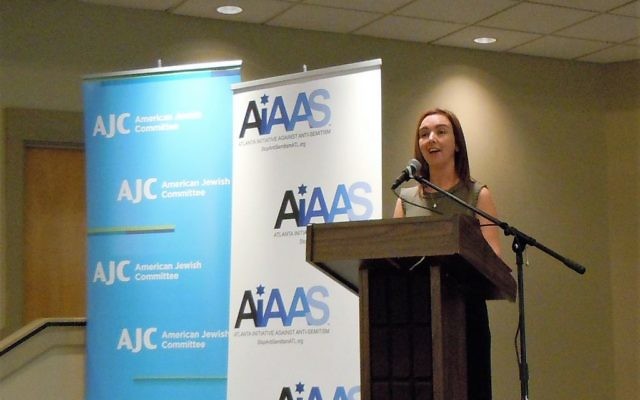Hate Crimes Laws Punish Actions, Not Thoughts
When victims are chosen by race, religion, ethnicity or sexual orientation, entire groups are threatened.

In his April 7 column, “Yes, We Are Biased,” Michael Jacobs says he does not see the need for a hate crimes law and believes it is a “distraction.” In fact, he has bought into the misinformation spread about what these laws do.
Opponents of hate crimes laws continue to dust off the tired arguments that such laws are unnecessary and punish thought — claims that are patently untrue.

All crime is tragic, but hate crimes, which are criminal acts motivated by bias or bigotry, affect entire communities because they target victims simply for who they are. In these crimes, violence is not used as a means for victim compliance. Rather, inflicting maximum violence is the goal. All that matters to the assailant is that the victim is or is perceived to be of a particular race, ethnicity, religion or sexual orientation.
Because hate crimes victims are interchangeable and random, these crimes terrorize the victim’s entire community and can lead to similarly terrorizing retaliatory hate crimes against random members of the perpetrators’ community just because of who they are.
One myth about hate crimes laws is that they punish speech and thought, a claim flatly rejected by the U.S. Supreme Court. These laws punish conduct: There cannot be a hate crime without an underlying crime like murder, arson, assault or vandalism.
In most criminal prosecutions, the defendant’s mental process accompanying the criminal act — motive or intent — is at issue. Just like any other crime, hate crimes, including the element of bias motive, must be proved at trial with evidence beyond a reasonable doubt to a jury or judge, usually by statements during the crime or graffiti left behind. Because hate crimes prosecutions must meet the same rigorous evidentiary standards as all other crimes, they are hard to prove.
Hate crimes laws reflect the magnitude of the impact of these crimes, which strike fear within victimized groups, including the Jewish community.
The recent wave of bomb threats to 165 Jewish organizations, along with the desecration of three historic Jewish cemeteries, is just the latest example of the terrorizing impact of hate crimes. They polarize entire communities and tear at our nation’s core values.
It is time for Georgia to join 45 other states and enact a comprehensive hate crimes law to protect persons and property against bias-motivated crimes. I cannot think of a more important or impactful issue to be taken up by the Atlanta Initiative Against Anti-Semitism as a focus of its efforts to combat anti-Semitism.
Shelley Rose is the Southeast interim regional director of the Anti-Defamation League.



comments